emotions
How To Find Your Inner Peace
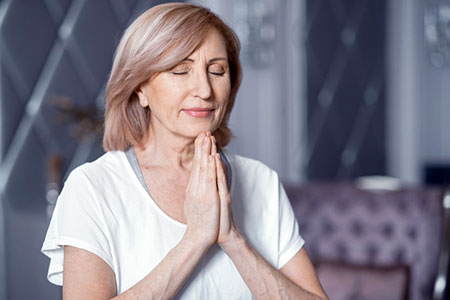 Around the world we are being faced with a crisis situation that is bringing many negative feelings to the surface. Fear, anxiety, sadness, confusion, mistrust, frustration, anger. How you are faring during this time? What emotional responses are coming to the surface for you?
Around the world we are being faced with a crisis situation that is bringing many negative feelings to the surface. Fear, anxiety, sadness, confusion, mistrust, frustration, anger. How you are faring during this time? What emotional responses are coming to the surface for you?
I have been following the news around the world. I have seen some leaders scoff at and make light of the situation, while others take it extremely seriously. There seems to be no unanimity or consistency in the messages we receive, and there appears to be a lack of consensus among the leadership and experts.
How then can we as individuals find inner peace and unity in all this chaos? The following guidelines may be helpful to you in the days ahead.
Turn Off The News
First things first: reduce your daily exposure to the news, and fact check everything you do choose to pay attention to. Most of all, do not believe everything you see on social media! Many of the stories going around are false reports, conspiracy theories and fake news. Some media outlets are also creating more fear and drama than we should have to deal with. Remember that in many cases sensationalism often equals sales. Choose your sources carefully and listen to your inner guidance and follow your intuition.
Finding Answers In The Akashic Records
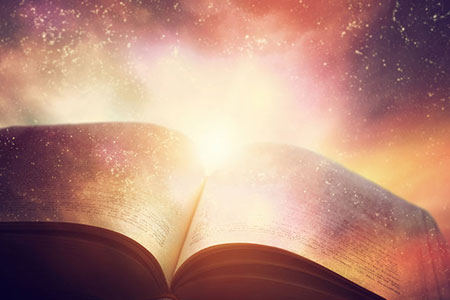 Imagine an enormous, vast, endless library where every book is a detailed record of every life every lived on Earth, as well as in every other dimension, or realms of existence. These are what is known as the Akasaha, or the Akashic Records. It is a complete collection of all the thoughts, words, feelings, events and experiences that have ever occurred in this life, and the next.
Imagine an enormous, vast, endless library where every book is a detailed record of every life every lived on Earth, as well as in every other dimension, or realms of existence. These are what is known as the Akasaha, or the Akashic Records. It is a complete collection of all the thoughts, words, feelings, events and experiences that have ever occurred in this life, and the next.
By accessing the Akashic Records, one can gain information about past lives or a present life. One can read any moment of someone’s life. One can feel their emotions, observe their thoughts, and find explanations and answers to life questions. One can also do this for any other soul the particular person interacted with in their current life, or their former incarnations.
There is no ego on the other side, so there are no secrets and no need for privacy. The Akashic record is a ‘public library’ with ‘free access.’ Every life lived contributes information or spiritual data for the collective consciousness, the universal mind and soul. We don’t just live our physical lives for our benefit, and our own soul evolution. We also live our lives for the expansion of the Universe, and the evolution of every other soul that has ever lived, or will ever live in the physical.
Anyone can go into the Akashic records and research their own lifetimes, and that of others, in order to learn from our choices, decisions, faults, mistakes, thoughts, emotions, challenges, adversities, lessons, gifts and blessings.
Herbs And Your Spiritual Well-Being
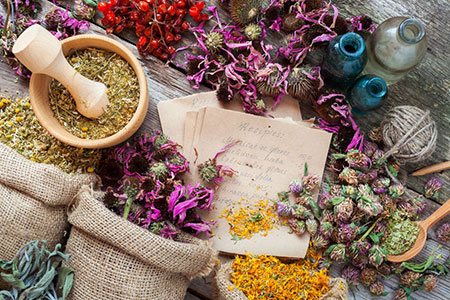 When our physical body is weakened or sick, we take remedies to heal it. We reach for a tincture, supplement or medication that we trust will help us. But, in the same way we care for our physical body, we also need to take care of our energy body and aura.
When our physical body is weakened or sick, we take remedies to heal it. We reach for a tincture, supplement or medication that we trust will help us. But, in the same way we care for our physical body, we also need to take care of our energy body and aura.
Yes, the light body or auric field also needs loving care, in the same way our body does. As a certified herbalist I find this is often overlooked in the field of health and medicine.
Many people only think of herbs as something you use in cooking to season food. Years ago, when I discovered that herbs were also a great way to treat the body for illness, I wasn’t expecting to find out all the other benefits herbs can offer us.
During my herbal studies coursework, I discovered that herbs not only help us heal physically, but can also work to bring our spiritual body back into alignment. The herbs work with us on many levels to promote harmony and wellness.
For example, when we drink Lavender tea for stress or anxiety. Try it yourself. Breathe in Lavender essential oil and notice how your thoughts instantly calm and the muscles in your body relax.
But Lavender not only promotes a sense of peace and calm, it also affects our spirit and changes our energy vibration. In addition to the effect it has on our nervous system, Lavender works with us on a spiritual level, to purify our soul and to clear out negative energy clogging our higher chakras.
The Healing Power Of Movement
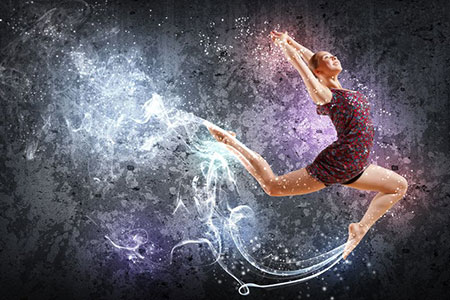 In my earliest years of life, I was severely shy, fearful of anyone I didn’t know, and acutely anxious of being separated from my mother. Any time we were out, or in the presence of others, I clung to her tightly and hid in silence behind her.
In my earliest years of life, I was severely shy, fearful of anyone I didn’t know, and acutely anxious of being separated from my mother. Any time we were out, or in the presence of others, I clung to her tightly and hid in silence behind her.
My mom soon received many recommendations to enroll me in dance lessons, to help me come out of my shell. She did, and I emerged. That was my first experience of the healing power of movement.
It continued into my ‘terribly turbulent’ teens, during which ballet became my only safe haven and sanctuary. In the ballet studio I could pour out every feeling. From the barre to the stage, every move was an opportunity to express what I needed to release, and to find the solace I needed.
A decade later, I found myself bedridden with chronic fatigue. Yet, visions of ballet spontaneously continued to dance across the screen of my mind’s eye – almost every moment of every day. I could feel the movement in my body, even though my body was unable to move. I know now it was a premonition of a life-changing return to dance, that ultimately remedied my illness and opened the way to reveal my gift of intuitive healing dance.
The power of movement is a beautiful thing. It can literally shift, shape, and reform energy. Energy itself comes in many forms and functions. Emotion, if you think about it, is energy in motion: e-motion. Everything, including you and I, are an emanation of energy from the Absolute Truth and Personality of Godhead.
Take Negative Emotions All The Way Home
 When life gets tough or something happens to upset me, whether it be big or small, I make it a point to become very quiet and mindful. I do this to get clear, so that I can see all sides of a situation, as well as stay open to learning any possible spiritual lessons that are being offered.
When life gets tough or something happens to upset me, whether it be big or small, I make it a point to become very quiet and mindful. I do this to get clear, so that I can see all sides of a situation, as well as stay open to learning any possible spiritual lessons that are being offered.
Typically, there’s a strong emotion linked to what has occurred. If I can allow it to be there in a calm way, I can start to see the situation from a clearer perspective.
If the situation involves being hurt, for example, I take some time out – long enough to not hastily defend myself or problem-solve. Doing this creates an opening where the Divine can step in and take over.
I like to think of it as having a weight on me and imagining a group of cherub angels coming along to lift the heavy burden emotions I’m experiencing. They then take it from me and fly away. Though this is just a visualization, there is great relief at times in turning situations over to a higher power.
I have noticed, as I get older, that certain things that used to bother me so much, and would take weeks or months to get over, I now release in just a day, or even a couple of hours. This is because I no longer allow myself to be overwhelmed by the emotion in the moment.
I believe what helps to accomplish this is going beyond the difficult emotion, into a realm or a land less frequented. I refer to is as “taking it all the way home.” What I mean by this is to examine what it is I am most afraid of.
Making The Most Of Pisces Season
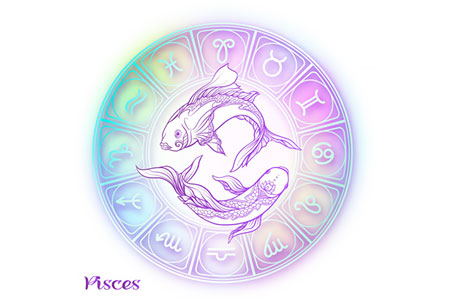 Today we are entering Pisces season. The Sun moves into the zodiac sign of Pisces every year from February 18th through March 20th, and activates our compassion, intuition and imagination. This is a cycle where we are able to get in touch with our deeper emotions and heal any issues that might be weighing us down.
Today we are entering Pisces season. The Sun moves into the zodiac sign of Pisces every year from February 18th through March 20th, and activates our compassion, intuition and imagination. This is a cycle where we are able to get in touch with our deeper emotions and heal any issues that might be weighing us down.
Pisces is a mutable, water sign, which allows us to be more flexible and go with the flow of the Universe. Now is not the best time for planning and taking action, but great for reflection, journaling, artistic expression and dreaming.
Technically, Pisces is the last sign of the zodiac and shows us the accumulation of what we have learned in the past year. It also helps us release in order to prepare for the next cycle in Aries.
The negative aspects of Pisces brings up addiction issues, escapism, delusions, being overly sensitive and falling into a victim mentality. It can seem like we are swimming in circles in this period, so acknowledging our direction and any imbalances are vital.
The Sun in Pisces is also a good time to get in touch with our bodies, and to detoxify with lots of water, fresh whole foods, and upgrading our self-care routine. If you are unsure of where to start with exercise, more gentle movement activities, like Tai Chi, Yoga, Pilates or swimming in a body of water, will help create re-connection. It is all about taking your time and accepting where you are in your life.
Aromatherapy For Stress Relief
 I have been using essential oils for many years. In the 1990s, I made it a point to study them and become certified. At that time aromatherapy was already very popular in Europe, where it was seen as a viable adjunct therapy. Science has gained more insight on the impact of scent on the brain, our emotions and our well-being.
I have been using essential oils for many years. In the 1990s, I made it a point to study them and become certified. At that time aromatherapy was already very popular in Europe, where it was seen as a viable adjunct therapy. Science has gained more insight on the impact of scent on the brain, our emotions and our well-being.
Stress originates from the limbic system, and our sense of smell is the only one that is linked to this part of the brain. Before we might even become aware of the effects an essential oil or fragrance may have on us, the molecules from the essential oils we smell are already at work on our limbic lobe.
Successful real estate agents know the power of smell, and often suggest you bake some chocolate chip cookies, or brew some fresh coffee before an open house, or simply simmer cloves, cinnamon, and orange peels in a small pot of boiling water, to evoke a homey, welcoming smell.
Scents also trigger memories. A scent from your childhood, that created a warm, secure, peaceful feeling, is something you might want to re-create with essential oils.
When the mind relaxes, the body follows. We all experience stress at times, and although essential oils cannot magically make a situation disappear, one may benefit from the relaxation effects that aromatherapy offers.